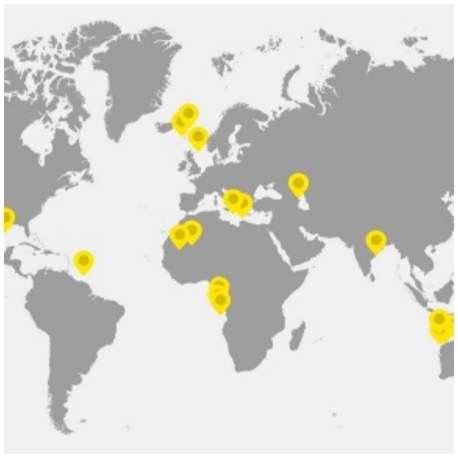BP Cuts $4bn off Q2 Losses (UPDATE)
Updates earlier results story, with comments from analysts' call
BP CEO Bob Dudley is optimistic that the company can meet its growth targets without needing to execute all the projects in the pipeline or buying new assets. Of the planned 800,000 barrels/day of new production by 2020, 90% had passed final investment decision phase, and there is a material opportunity for growth in the next decade, he said.
This is despite plans to cut capital expenditure up and downstream by at least 30% from the peak $24.6bn in 2013 to $15bn-$17bn in 2017; and to sell at least $3bn of assets this year and $2bn next year, retaining debt gearing between 20% and 30%. The company will continue to pursue value over volume, so continually high-grading its portfolio.
A big part of its future growth will come from Egypt and possibly India. The company is in a much better position regarding its receivables due from the former, without specifying the size of the government’s debt for gas delivered to the domestic market. Cairo has shown itself flexible as it needs to bring its reserves to the market, BP said.
Upstream major projects (credit: BP)
In India, the wellhead price is now higher, as the country wants to produce its own gas. “The change makes gas developments very attractive, it is better than importing LNG,” BP said. “India is moving up the list of countries competing for our capital.”
Further, the company is still seeing reductions in service companies’ costs and is confident that it can break even at $50-$55/barrel, which it expects next year. Upstream boss Bernard Looney said that 75% of the cost savings it had made were sustainable: “We will make them stick,” he said.
BP reported a replacement cost loss for the second quarter of $2.247bn, down from last year's $6.266bn. It reported a net loss attributable to shareholders of $1.419bn, down from $5.823bn. The downstream business was less profitable in Q2 this year, at $1.51bn, compared with last year's $1.87bn.
The average oil price received was down by a fifth, from $56.69/barrel to $44.99/b; and the average gas price was down by 30%, from $3.80mn ft³ to $2.66/mn ft³. The US gas price fell by 27% while the European gas price fell by 53% year on year. Its earnings from its stake in Russian controlled Rosneft halved, from last year's $510mn to this year's $246mn, due mostly to lower oil prices, but it expects also to receive a dividend of $335mn from last year's annual results.
Gas production was about the same, year on year, with a small gain (189mn ft³/d) in the US not enough to offset a drop (260mn ft³/d) in the rest of the world, bringing the total down from 5.8bn ft³/d to 5.7bn ft³/d. Overall production, excluding Russia, was down 1%, at 2.1mn barrels of oil equivalent/day.
Upstream, the underlying replacement cost profit was $29mn, down from $494mn. Maintenance will probably mean a lower figure for the third quarter.
Its loss from the US Gulf of Mexico spill more than halved, from last year's $10.747bn to this year's $5.106bn, and includes all the major outstanding legal liabilities.
BP agreed a number of upstream deals and projects in the quarter, including doubling its stake in the UK Culzean field to 32%; founding a joint venture for Russia with Rosneft, Yermak Neftegaz, and one for Norway with DNO, Aker BP; and it continued finding gas in Egypt.
In July it agreed the expansion of Tangguh, helped by lower costs. CEO Bob Dudley told analysts on a conference call that Tangguh was the lowest-cost LNG supply, and it wanted to renew the contracts with Japan. On the other hand, BP and partners deferred the Australian Browse LNG decision as it still did not make sense, he said.
A report by Wood Mackenzie out July 26 cautioned that it was "too early to call the start of the next investment cycle, despite some recent high profile project sanctions. Many next-generation projects still fall short of tougher economic screening criteria, particularly in deepwater." However it could see signs of recovery: "Oil and gas companies' investment strategies are now starting to adapt to the new price environment. Some have seized the moment with counter-cyclical moves that have repositioned portfolios lower down the cost curve," it said.
William Powell



